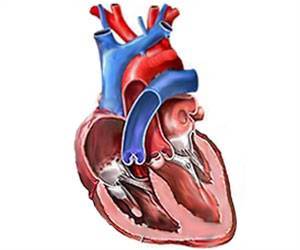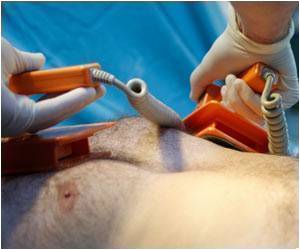A blood test developed helps predict survival rates after surgery for people with advanced heart failure and if organ function can be improved after surgery.

‘Genomic blood test can predict if heart failure patients' organ function could be recovered and be improved after surgery.’





Mechanical circulatory support devices, such as ventricular assist devices and temporary total artificial hearts, can be surgically implanted in people with advanced heart failure to help the heart's pumping function. But people with advanced heart failure often also suffer from multi-organ dysfunction syndrome, which can lead to death after a device is implanted and is associated with atypical white blood cell activity.
When patients and doctors are considering a mechanical assist device, current clinical methods used to predict treatment results have limitations: They do not perform well in very sick patients and they do not use molecular information. That lack of precision in predicting treatment outcomes can complicate the shared decision-making process between patients and their doctors.
Dr. Mario Deng, the study's principal investigator, was also a co-developer of an FDA-approved molecular blood test called AlloMap, which is used to diagnose organ rejection in heart transplant recipients.
The technology used in the new study, called MyLeukoMap, builds on the methods used in developing AlloMap.
Advertisement
The patients were classified into two groups depending on their level of organ function. Seventeen patients showed improvement and 12 did not. One year later, 88 percent of the people in the "improved" group were still alive, compared with 27 percent in the other group.
Advertisement
The researchers hope to study whether the test can also be used to accurately predict how people with advanced heart failure and declining organ function will fare after undergoing other types of heart surgery and catheter-based interventions.
The test also could help patients and doctors make more informed decisions about treatment options if it predicts a poor outcome, patients could choose to postpone surgery until their condition improves or could opt for another course of treatment.
Ultimately, it could improve survival rates, and the quality and cost-effectiveness of care.
In the next phase of the study, researchers will expand the research to analyze results for 1,000 patients from 10 sites in the U.S. and around the world.
Source-Eurekalert














